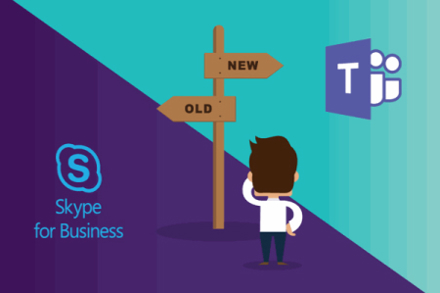Microsoft ended mainstream support for Window 7 on wait for it... January 13th 2015 and now, 5 years later, they’re also going to stop extended support for Windows 7 as well.
D-day is January 14th 2020, so the good news is, you still have time to get prepared the bad news is, you don’t have much time!
So, what does end of life mean for Windows 7?
End of life is a term that Microsoft use to describe the period where they officially stop supporting a given application or operating system. The reason this is important, is because it means they will no long patch it with security updates and that can cause problems for businesses with valuable data. Moreover, because the end of life deadline for Windows 7 is widely advertised, Hackers know precisely when the application becomes vulnerable, giving them free reign to try and exploit it.
What can you do to stay secure?
Well first and foremost, it’s well worth considering upgrading your operating system to a new version such as Windows 10, which is still fully supported by Microsoft. This is an attractive option for many businesses because it stays within the Windows environment, making the process of upgrading relatively easy and with minimal disruption. It’s also similar in terms of layout, interface design and functionality to Windows 7, so there’s not such a steep learning curve required to move from one to the other.
When it comes to software upgrades and migrations, we have a couple of top tips too.
Number one: take a backup all of your files before you do anything. Then if anything does go array in the upgrade process, you’ve not lost potentially years of valuable work and data.
Number two: when upgrading from Windows 7, don’t be tempted to save a few pennies by just upgrading to Windows 8, in the long run it’s unlikely to be more economical as this too is likely to enter an end of life stage in the near future. We’d generally always recommend upgrading to the latest version available where possible.
Of course, just because you’ve used Windows before doesn’t necessarily mean you need to keep on using Windows for the future either, so this may also be a good time to consider some other options.
If you’re not sure what to do after January 14th 2020 or you’d like some help with upgrading your Windows 7 system then speak to our experts today.
Dynamic Insights & Advice

Dynamic Networks Group Continues Its Expansion
Dynamic Networks Group continues its expansion with the acquisition of Peak Support Services Ltd, a Derbyshire based Cloud MSP.

Dynamic Networks completes a Management Buyout and commences its acquisition strategy
David Smith (CEO) and Gareth Leece (COO) have successfully completed an MBO of Dynamic Networks, working with Paul Landsman of Kingland Capital. The MBO provides for a simplification of the Board structure to allow for its continued accelerated growth strategy.

10 reasons to archive your business emails in the cloud
For most organisations, email has become an essential part of daily workflow and communications. However, many businesses are unaware of the importance of archiving their emails and having an email retention strategy.

Planning a successful migration to the cloud
Moving to the cloud comes with multiple benefits. For most businesses, it usually means reducing running costs, faster modernisation capabilities and increased security.

2021 IT trends your business should be thinking about
Here are our top IT trends and predictions your business should be thinking about now to prepare for 2021.

The end of Skype for Business is closer than you think...
Microsoft have recently announced that Skype for Business Online will be retiring on July 31, 2021.


